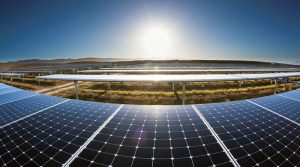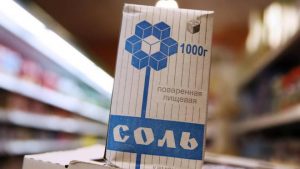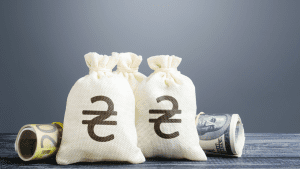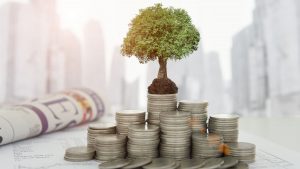
The volume of investments in household solar power plants reached EUR 600 million from 2015 by the end of 2020, the State Agency on Energy Efficiency and Energy Saving has reported.
“As of the end of 2020, there are more than 29,900 families in Ukraine who have installed solar panels. Their total capacity reaches 780 MW,” the agency said on Facebook.
According to the report, the top three in terms of the number of household solar plants are Dnipropetrovsk (4,184), Ternopil (2,512) and Kyiv (2,350) regions.
The agency also indicated that from 2018 to 2020 inclusive, the number of households with solar plants increased fourfold – from 7,450 to 29,900.
Taking into account the agency’s data for the first three quarters of 2020, in its last quarter, the capacity of solar plants increased by 68 MW, and investments by EUR 40 million. The number of households that connected home solar generation facilities rose by almost 1,500.

The state-owned enterprise Artyomsol in 2020 reduced salt production by 41%, to 1.18 million tonnes, which is associated with weather conditions, quarantine and increased competition in world markets, the company said in a press release on Tuesday.
According to it, Artyomsol produced 762,200 tonnes of ground salt used for sprinkling roads without packaging, which is half as much as in 2019, and this is associated with a warm winter in Ukraine and far abroad. According to the state-owned enterprise, the production of packaged salt increased by 3.6%, to 186,400 tonnes, whiles the production of iodized salt decreased by 6.6%, to 53,200 tonnes.
Salt packed in bags (10 kg, 20 kg and 50 kg) was produced in 2020 by 27.6% less only 147,600 tonnes, production of salt packed in flexible intermediate bulk containers reduced by one third, to 51,000 tonnes.
The output of salt briquettes over the year, according to a press release, decreased by 6.7% , to 11,200 tonnes, while salt blocks increased by 17%, to 3,400 tonnes.
The state-owned enterprise indicated that in 2020 the enterprise shipped its products to 15 countries of the world. The main importers of its products are Hungary, Poland, Slovakia, Romania and Belarus. More than 70% of the products were sent to the Ukrainian market.
According to the enterprise, at the end of 2020, there was a tendency to increase production volumes of the entire range.
“We have started a program of ‘rehabilitation’ of the enterprise, which includes a set of rapid measures to improve production efficiency and social support for workers. In 2021, we plan to increase investments in renovation and modernization of production to UAH 250 million, while in 2020 the volume of capital investments amounted to UAH 66 million,” Acting Director of Artyomsol Victoria Lutsenko said.
Artyomsol is one of the largest enterprises for the extraction and sale of sodium chloride (NaCl) in Central and Eastern Europe. The production facilities of Artyomsol are located in Soledar, Donetsk region.

Mobalytics, a startup with Ukrainian roots, has announced the closure of the series A funding round in the amount of $11.25 million, investments will be used for the creation of a personal assistant for gamers.
Mobalytics told Interfax-Ukraine that the round was headed by the venture funds Almaz Capital and Cabra VC. Other investors who participated in the round include HP Tech Ventures, General Catalyst, GGV Capital, RRE Ventures, Axiomatic, and T1 Esports.
“Being among the first investors, Almaz Capital supported Mobalytics at every stage of the startup’s growth from the launch of the first game to the emergence of several game genres on the platform. The team did this masterly, creating all the conditions for scaling their product,” Danylo Stoliarov, a partner of Almaz Capital, said.
The startup plans to use the attracted investments to further develop the product, improving analytics and a personalized approach to each user. In addition, Mobalytics intends to increase the number of supported games on the platform and expand its technical and product teams over the next six months.
The Mobalytics team has been building and testing the GPI (Gamer Performance Index) for four years.
Mobalytics is an analytics platform and personal gaming assistant designed to help video game fans hone their skills. In 2016, the startup won the TechCrunch Disrupt Battlegrounds.
One of the largest parts of the startup team is located in Ukraine, the head office is located in Los Angeles (the United States), two of the three project founders are also Ukrainians.

Foreign Minister of Ukraine Dmytro Kuleba has offered President of the American Chamber of Commerce in Ukraine (ACC) Andy Hunder and Executive Director of the European Business Association (EBA) Anna Derevyanko cooperation to develop trade and attract investment, the press service of the ministry said. “In the United States, Asian countries, and EU countries, the protection of internal business abroad, the development of trade, and the attraction of investments are some of the key functions of the foreign ministries. Now we are creating such an effective system of economic diplomacy in Ukraine. I would like to invite the leading Ukrainian business to unite forces,” Kuleba said during a video conference on Tuesday.
Kuleba also told about the relaunch of the Council of Exporters and Investors under the Ministry of Foreign Affairs. A meeting of the members, 80% of whom were reelected, is scheduled for May 21. Participants will be organized according to industry principles and will develop a joint work plan for the year.
The minister also shared with Hunder and Derevyanko his vision of cooperation between the diplomatic system and business, which will fill the agenda of relations with other countries with real cooperation projects, liberalize trade, expand the geography of exports, and attract investment in Ukraine.
Kuleba believes that successful Ukrainian business is also able to play a key role in establishing an effective system of economic diplomacy. It is, in particular, about professional expert assessment, attracting business to diplomatic education, and conducting special trainings and courses.
Derevyanko and Hunder, in turn, expressed gratitude for the initiative, which, in their opinion, is able to bring cooperation between business and diplomacy to a new level and contribute to the protection of Ukrainian economic interests. For their part, they confirmed their readiness to cooperate under the Council of Exporters and Investors, as well as in the development of an assessment system and diplomatic education.The parties paid special attention to the subject of encouraging foreign companies that transfer production from other regions of the world closer to sales markets, to locating production in Ukraine.
ACC, EBA, FM, INVESTMENTS